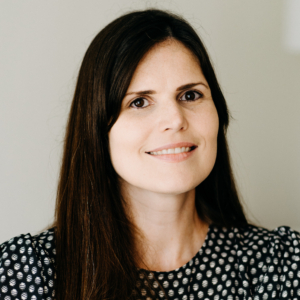Understanding Attachment Wounds and Food Anxiety During the Holiday Season
The holiday season can provoke overwhelm and worry, with regard to food and our relationships. The interplay between our connections with food and people can become accentuated during this season of densely packed party trays and rooms full of revelers. Gatherings with family, friends, neighbors, coworkers, and complete strangers can become highly triggering, especially when around a snack or dinner table. Exploring the similarities in our relationships to people and food can be the key to increasing feelings of security.
Eating disorders and disordered views on eating and our bodies develop within a societal and cultural context. On an individual level, their foundation is laid in our earliest experiences. These relational histories result in different “attachment styles”. Exploring our deep-rooted attachments and their influence on our food behaviors can unlock pathways to psychological and nutritional healing. Behavioral changes and challenging diet culture can also assist with rebuilding food beliefs and behaviors. But, in the longer term, healing our relationships with people can be an integral part of finding peace with food and ourselves.
As with most aspects of life, there are no simple answers. We know that our early attachments can have a profound influence on our interpersonal relationships. Behavioralists defined four major attachment styles: avoidant, anxious-ambivalent, disorganized, and secure. Disordered eating and negative body image can often mirror these attachment patterns and early traumas. When we feel unsafe, lacking trust in our intuition, or fearing that others will betray and disappoint us, food and body issues can accompany our attachment wounds.
When we are shut down, depressed, and fearful of connection, food can become a refuge, a means for numbing out feelings of loneliness and confusion. Refusal or avoidance of food, on the other hand, and the denial of our innate desires can also generate feelings of stability, control, and disconnection. The act of eating or the denial of it can each serve as a maladaptive coping skill to avoid feelings associated to attachment trauma or unresolved discomfort in relationships. These acts can also serve to “do and undo” confusing and juxtaposed feelings, where deep feelings of love and anger coexist. Taking an experience in and quickly pushing it away to avoid feelings of guilt or overwhelm can be mimicked in our food behaviors.
Attachment work can be crucial to deeply understanding and healing our relationship with food and our bodies. The exploration of our early attachments can be a channel toward a more intuitive, loving, and compassionate understanding of ourselves and our food beliefs. Secure connections can be restored within the context of the therapeutic relationship and then carried into the day-to-day. Appropriate boundaries are redefined, and reliability is rebuilt. Through this relational repair also comes a greater sense of trust with food as well as a more accepting and loving view of our whole self. There is no greater gift.
Kathryn Garland, LCSW-S is a licensed clinical social worker and supervisor in Texas, Massachusetts, and New York. Kathryn spent her early career and completed postgraduate training in psychoanalytic psychotherapy in New York City. She incorporates relational and intuitive methods into her work with clients and has specialized in eating disorders over the last decade. Her experience includes working with LGBTQIA+ teens in the NYC foster care system, community mental health clinics, as well as primary therapist and IOP Program Coordinator at an eating disorder treatment center. Kathryn is currently a field instructor for Boston University School of Social Work, consulting therapist for Within Health, and co-owns a group practice called CALM Counseling in Austin, Texas.





